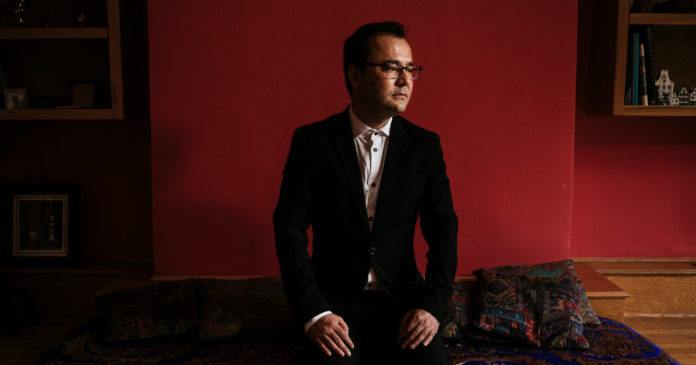Organizers of the mental health initiatives say they have so far seen a positive, if cautious, response from diaspora Uyghurs. One big challenge, they say, has been overcoming the cultural stigma of therapy, pervasive in Uyghur and many other cultures.
Linguistic barriers are also a problem; relatively few professionally trained mental health counselors speak Uyghur. Other challenges are more administrative, like the difficulty in the United States of finding mental health care that is covered by insurance.
Some who have made it past the barriers, like Mamutjan Abdurehim, say that therapy offered a much-needed source of structured communication during a period of profound isolation. Mr. Mamutjan, 43, had been living abroad but having nearly daily video chats with his family back in Xinjiang until 2017, when his wife was detained. She had returned home with the children to replace a lost passport. Mr. Mamutjan’s mother then advised him, for everyone’s safety, to stop calling.
Over the next few years, he has had only occasional glimpses of his two children through grainy photos sent by friends. At first, he tried to deal with the mounting anxiety on his own, before deciding he needed professional help.
“It was a useful tool for me to know how to communicate my inner feelings,” he said.
The reality is that counseling, of course, has its limits. Mamtimin Ala, a Uyghur activist in Brussels, said that since the crackdown began, he had often found himself turning to poetry, the lifeblood of Uyghur culture, for solace in his darkest moments.
He cited one verse in particular, from “Elegy” by Perhat Tursun, a prominent Uyghur writer who was reportedly detained by Chinese authorities in 2018.
I happily drank down poison, thinking it fine wine
When they search the streets and cannot find my vanished figure
Do you know that I am with you.
Poem translated by Joshua L. Freeman.
Source : Nytimes












